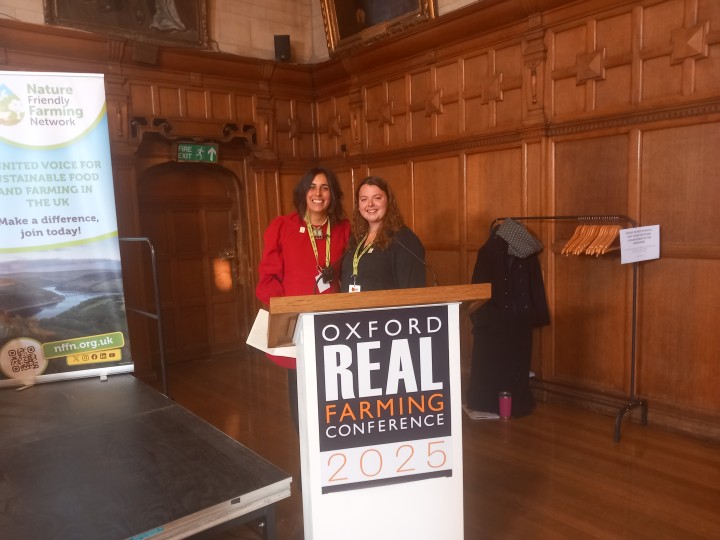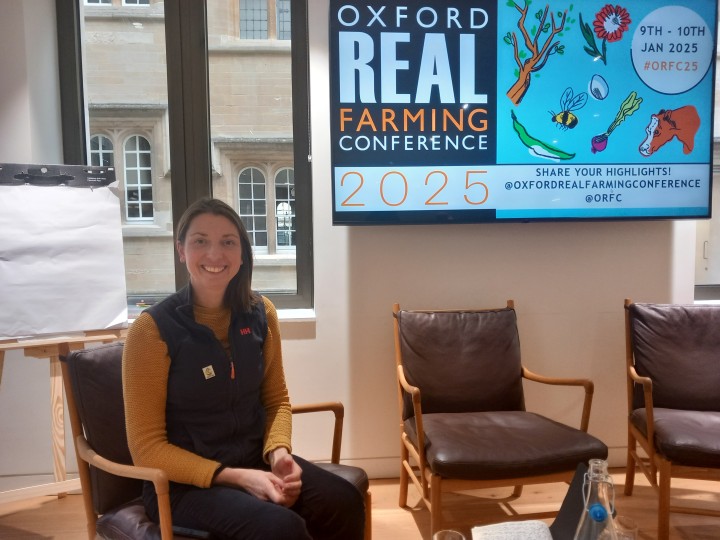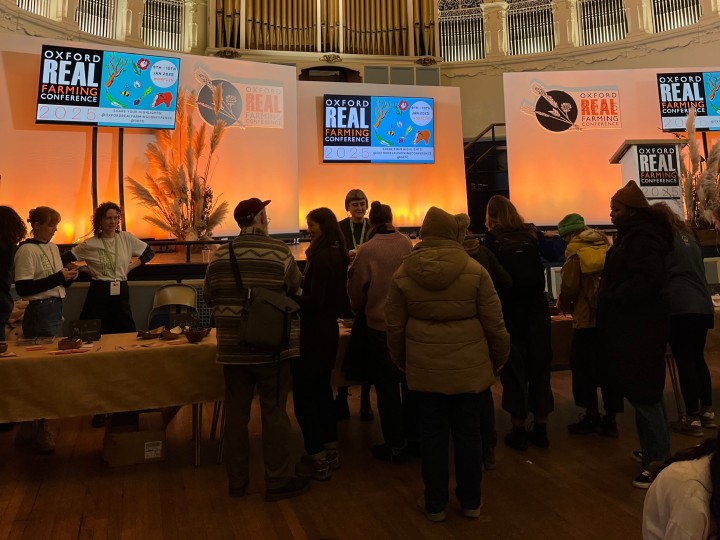The NFFN travelled to Oxford to attend the annual Oxford Real Farming Conference - here are five things we learned from two jam-packed days of talks and events.
The 16th Oxford Real Farming Conference (ORFC) took place on Thursday 9 and Friday 10 January, with thousands of delegates from across the UK and around the world discussing a vast range of subjects based around farming, food production, the nature and climate crises and the need to transform the food system for sustainability and justice.
Initially created as an alternative to the long-established Oxford Farming Conference (OFC), the ORFC has developed into one of the world’s most important forums for discussing progressive, nature-friendly farming and alternative methods of food production and land use, as well as answering the biggest questions about what we grow and eat around the globe
The NFFN was once again a visible presence at the 2025 conference, organising and contributing to talks and showcasing our positive, solutions-focused approach to tackling the big issues farming faces.
Here are five takeaways from two packed days of thought-provoking talks and conversations:
NFFN farmer’s successful story of transition delights audience
The NFFN’s stand-alone event at this year’s ORFC was a Farm Deep Dive on the Thursday lunchtime, as Farming Champion Florence Mannerings took the audience in the Assembly Room at Oxford Town Hall through the story of how moving to Chilton Farm in Kent led to her and her family swapping conventional dairy agriculture for a nature-friendly approach.





